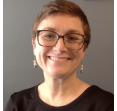Cleveland

Center on Poverty and Community Development
RSS FeedSubname: Jack, Joseph and Morton Mandel School for Applied Social Science, Case Western Reserve University
Subname:
Jack, Joseph and Morton Mandel School for Applied Social Science, Case Western Reserve University









Activities
March 31, 2024
Three NNIP partners and Urban Institute’s NNIP team were featured in the recent HUD Cityscape issue, Local Data... [read more]
Three NNIP partners and Urban Institute’s NNIP team were featured in the recent HUD Cityscape issue, Local Data... [read more]
November 2019
The purpose of Sunlight Foundation's Community Data Dialogues playbook is to help jump-start community action, providing stories about how open data advocates have co-designed, collaborated, and... [read more]
The purpose of Sunlight Foundation's Community Data Dialogues playbook is to help jump-start community action, providing stories about how open data advocates have co-designed, collaborated, and... [read more]
Publications
September 24, 2024
Presentation - By: Michael Henderson
Presentation - By: Michael Henderson
Center on Poverty and Community Development
September 24, 2024
Meeting Materials - By: Urban Institute
Meeting Materials - By: Urban Institute
DataWorks NC, Center on Poverty and Community Development, Furman Center for Real Estate and Urban Policy, Center for Urban and Regional Affairs
September 23, 2024
Meeting Materials - By: Urban Institute
Meeting Materials - By: Urban Institute
Data Driven Detroit (D3), Center on Poverty and Community Development
November 10, 2023
Meeting Materials - By: National Neighborhood Indicators Partnership
Meeting Materials - By: National Neighborhood Indicators Partnership
Mid-Ohio Regional Planning Commission (MORPC), Center on Poverty and Community Development
November 10, 2023
Presentation - By: Urban Institute
Presentation - By: Urban Institute
Center on Poverty and Community Development
Partner Webinars
April 16, 2015 - 1:00pm
In May and August, after partners expressed the desire for more interactions among partners between in-person meetings, we held our first two virtual idea showcases. It gave several partners the... [read more]
In May and August, after partners expressed the desire for more interactions among partners between in-person meetings, we held our first two virtual idea showcases. It gave several partners the... [read more]
Presenters Kathy Pettit, Leah Hendey, Peter Tatian, Beth Anthony, Taryn Gress, Vicki Mack, Clarissa Ozuna
November 16, 2010 - 7:00pm
This webinar features two NNIP partners who are building integrated data systems to support program planning. [read more]
This webinar features two NNIP partners who are building integrated data systems to support program planning. [read more]
Presenters Claudia Coulton, Center on Urban Poverty and Community Development at Case Western University, Jim Lucht, Providence Plan
